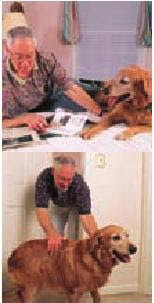If you can control your triggers, you can help keep your airways from becoming inflamed and swollen.
Common Allergens That Trigger Asthma
 Dust mites are tiny insects found in house dust in almost all parts of the United States. They live on human dander (skin flakes shed by all people), and they increase with moisture in the air. Dust mites are plentiful on mattresses, pillows, carpets, bed covers, and upholstered furniture.
Dust mites are tiny insects found in house dust in almost all parts of the United States. They live on human dander (skin flakes shed by all people), and they increase with moisture in the air. Dust mites are plentiful on mattresses, pillows, carpets, bed covers, and upholstered furniture.S O L U T I O N •
You can control dust mites by washing the bed pillows, sheets, and covers every week in hot water (130o F). • Use a special allergy-proof mattress and pillow covers. • If possible, get rid of carpets, extra pillows, and upholstered furniture, especially in the bedroom. • Limit stuffed animals in children’s rooms, and wash them weekly in hot water (130o F). • Dust and vacuum often.
• Use a dehumidifier in damp areas, such as basements—dust mites need moist air to live.
 Animals
AnimalsAll warm-blooded animals, including birds and small rodents, produce dander (shedded skin, fur, and
feathers), urine, saliva, and droppings to which you may be sensitive.
S O L U T I O N
• Don’t have furry pets in your home. Your pet will increase asthma symptoms, either immediately
or over time.
• If that’s not an option, keep pets out of your bedroom. Keep your bedroom door closed, and
consider using dense filters or tape double-thickness cheesecloth over forced-air outlets.
• Keep pets away from carpet and upholstered furniture as much as possible.
 Molds
MoldsMolds can grow in many homes and apartments, especially if you have a damp environment.
S O L U T I O N
• Repair leaks and clean with fungicide or bleach and water solutions where mold is visible.
Keep humidity at less than 50%, using a dehumidifier if necessary, especially in basements.
Cockroach Droppings
You can breathe in the droppings of cockroaches and become sensitive to it. This is a concern in big
cities and areas of the country with cockroach problems.
S O L U T I O N
• Keep food in tight containers.
• Repair water leaks.
• Use traps and poison baits to control cockroaches.
Outdoor Triggers
Tree, grass, and weed pollens and outdoor mold can also be a problem. Air pollution, smoke,
and car exhaust can affect you as well.
S O L U T I O N
• Keep your doors and windows shut, when possible, during times when outdoor triggers
are present.
• Avoid outdoor activity during high pollen or ozone hours, or premedicate prior to activity.
• Shower and shampoo after being outside.
Common Irritants That Trigger Asthma
Strong Smells
Strong smells from painting, spraying, cleaning fluids, garden chemicals, perfumes, lotions,hair sprays, and deodorants can trigger asthma problems.
S O L U T I O N
• Stay away from the house or apartment when these chemicals and sprays are in use, and stay away until the smell clears.
Smoking
Cigarette, pipe, and cigar smoke are triggers that can affect asthma severely. Children in homes with adults who smoke are far more likely to have asthma problems and ear infections.
S O L U T I O N
• If possible, smokers in families with asthma should quit.
• Smokers should never smoke indoors, in cars, or around people with asthma.
• Smokers should wear a removable shirt or jacket while smoking that can be taken off upon returning inside.
Infections
Viruses and infections of the sinuses can also make asthma worse. Viral infections are the most common triggers in young children and also cause attacks in adults.
S O L U T I O N
• Get your flu shot every year.
• See your provider for proper treatment. Often, you will need more of your regular asthma medicines until the infection clears.
• Ask your provider for asthma medicine prior to flu season to prevent an asthma attack if your child gets a viral infection every year.
Drainage From Colds and Sinus Problems
Drainage from colds and other sinus problems can make asthma worse.
S O L U T I O N
• Don’t ignore a drippy nose. Talk to your provider about medicines you can take
to reduce the drainage.
• Wash hands frequently.
• Don’t share toothbrushes or toothpaste when you have a cold.
No comments:
Post a Comment